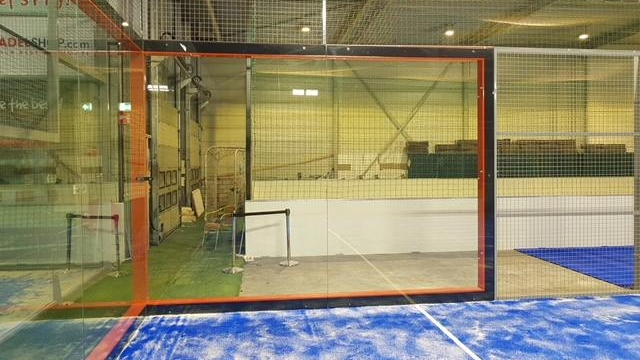
Breaking Free: Overcoming Alcohol Addiction Through Rehabilitation
Alcohol addiction can be a debilitating and destructive force in a person’s life. It not only takes a toll on their physical health but also strains relationships, impacts their ability to function effectively, and hampers personal growth. However, there is hope for those who are willing to break free from this vicious cycle. Through the process of alcohol rehabilitation, individuals can find the support, guidance, and tools they need to overcome their addiction and reclaim their lives.
Rehabilitation provides a structured and comprehensive approach to addressing alcohol addiction. It involves a combination of therapy, counseling, support groups, and medical intervention to assist individuals in detoxifying their bodies and addressing the underlying causes of their addiction. By addressing the root issues, individuals can begin to heal emotionally, mentally, and physically.
A successful alcohol rehabilitation program takes into account the unique needs and circumstances of each person. It aims to empower individuals to develop healthy coping mechanisms, gain self-awareness, and learn strategies for relapse prevention. Additionally, it helps individuals rebuild their lives by providing education and resources to assist them in reintegrating into society.
In the following guide, we will delve deeper into the process of alcohol rehabilitation. We will explore the different treatment options available, the steps involved in the rehabilitation journey, and the importance of ongoing support and aftercare. Whether you are seeking help for yourself or a loved one, this guide aims to provide valuable insights and practical advice to aid in the path towards recovery from alcohol addiction.
Understanding Alcohol Addiction
Alcohol addiction is a complex health issue that affects millions of individuals worldwide. It is a condition characterized by the compulsive and uncontrollable need to consume alcohol despite its negative consequences. This addiction can have detrimental effects on one’s physical, mental, and social well-being.
The first stage of alcohol addiction typically involves experimentation and occasional use. As individuals continue to consume alcohol, their bodies may develop a tolerance, requiring larger amounts to achieve the desired effect. This can lead to more frequent consumption and a loss of control over drinking habits, eventually resulting in dependence.
Alcohol addiction is not solely a physical dependence on alcohol but also involves psychological and emotional factors. Individuals may rely on alcohol to cope with stress, anxiety, or other underlying issues. Over time, this reliance can further perpetuate the addiction cycle, making it increasingly difficult to break free from its grip.
Drug Rehabilitation Centre In Mumbai
If left untreated, alcohol addiction can have severe consequences on various aspects of life. It can strain relationships, hinder professional growth, and negatively impact both mental and physical health. Recognizing the signs of alcohol addiction is crucial in seeking timely support and intervention.
Understanding the complexities of alcohol addiction is an essential step towards breaking free from its grip. By acknowledging the detrimental effects it can have, one can take the necessary steps to overcome this addiction and regain control over their life. With proper guidance and support, recovery is possible, and a healthier, alcohol-free future can be achieved.
Choosing the Right Rehabilitation Program
When it comes to overcoming alcohol addiction, choosing the right rehabilitation program is a crucial step towards recovery. The journey to sobriety is unique for every individual, and finding a program that aligns with your needs and goals is essential for long-term success.
Evaluate Your Needs and Goals:
Before selecting a rehabilitation program, it’s important to assess your specific needs and goals. Consider factors such as the severity of your addiction, any underlying mental health issues, and your personal preferences. Some programs specialize in treating co-occurring disorders, while others might focus more on holistic approaches. Determine what aspects are important to you in order to find a program that can cater to your individual requirements.Research Available Options:
Take the time to research the various rehabilitation programs available to you. Look for accredited facilities that have a track record of success in helping individuals overcome alcohol addiction. Explore the different treatment approaches they offer, such as inpatient, outpatient, or residential programs. Look for reviews and testimonials from past clients to get a sense of the program’s effectiveness and the experiences of others who have gone through it.Seek Professional Guidance:
Making such an important decision can be overwhelming, but seeking guidance from a healthcare professional can provide valuable insight. Reach out to addiction counselors, therapists, or physicians who have experience in this field. They can assess your situation, provide recommendations, and guide you towards a program that best suits your needs. Their expertise can help ensure that you make an informed choice and increase the likelihood of a successful recovery.
Remember, choosing the right rehabilitation program is a significant step towards breaking free from alcohol addiction. Taking the time to evaluate your needs, research your options, and seek professional guidance will aid you in finding a program that provides the support and resources necessary for your journey to a healthier, alcohol-free life.
Building a Strong Support System
Creating a strong support system is an integral part of alcohol rehabilitation. It provides individuals the foundation and encouragement needed to navigate the challenges of recovery. A solid support system is crucial for maintaining sobriety in the long term. Here are three key aspects to consider when building your support network:
Seeking Professional Guidance: A drug rehabilitation guide can provide invaluable expertise in navigating the recovery journey. Professionals such as therapists, counselors, or addiction specialists can offer guidance, therapy, and appropriate treatment options. They can help identify triggers, develop coping strategies, and provide ongoing support during your rehabilitation process.
Finding Understanding Friends and Family: Support from loved ones can be immensely helpful during alcohol rehabilitation. Surrounding yourself with understanding friends and family members who are committed to your recovery can make a significant difference. Openly communicating your needs and goals to them can foster an environment of empathy, encouragement, and accountability.
Connecting with Support Groups: Joining support groups, such as alcohol rehabilitation programs or community-based organizations, can provide an additional layer of emotional support and practical advice. These groups offer a sense of community, allowing you to connect with individuals who have experienced similar challenges. Attending regular meetings, sharing experiences, and listening to others’ stories can offer comfort, motivation, and inspiration on your path to recovery.
Remember, building a strong support system takes time and effort. Surrounding yourself with individuals who believe in your ability to overcome alcohol addiction can provide the encouragement needed to sustain long-term recovery.




